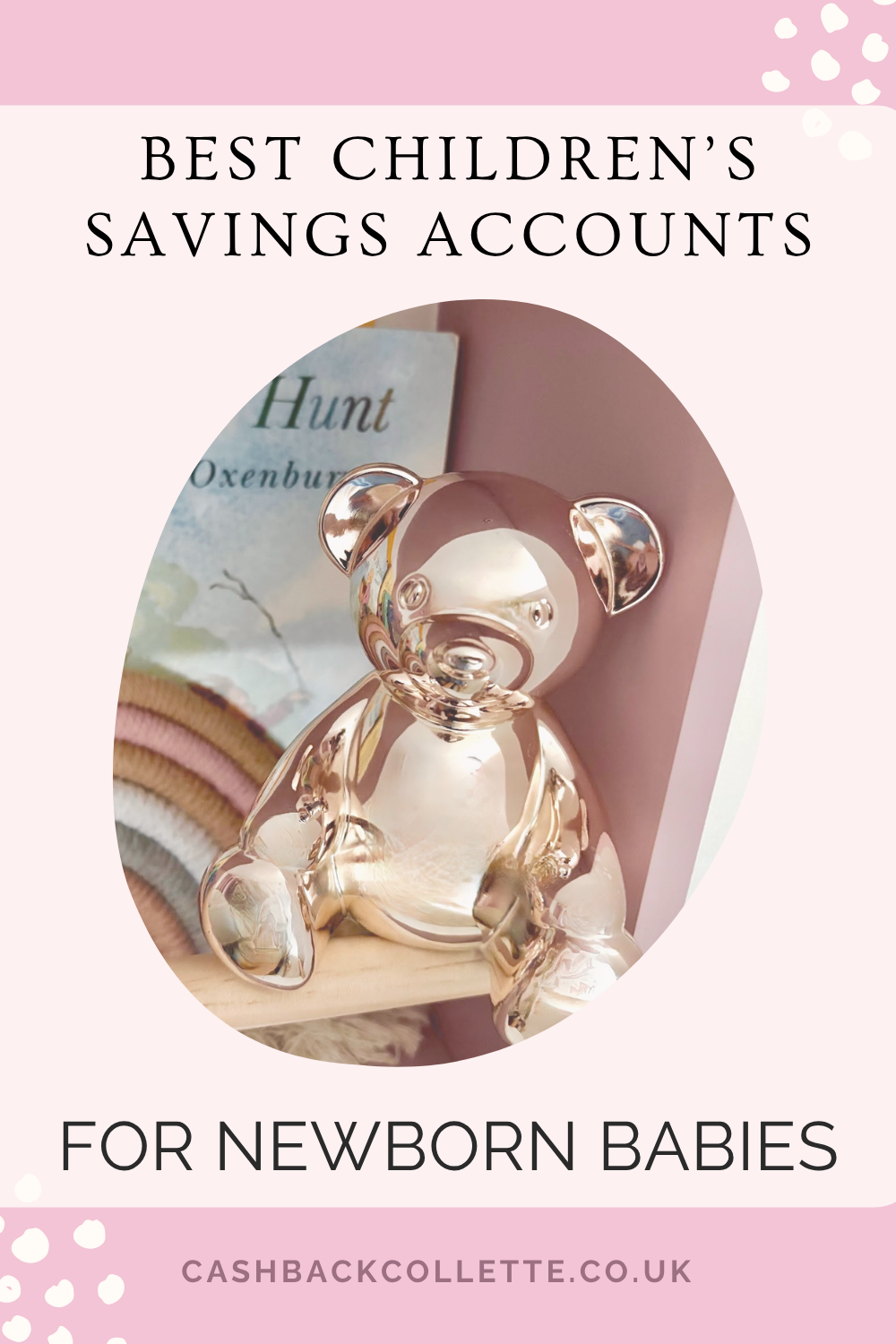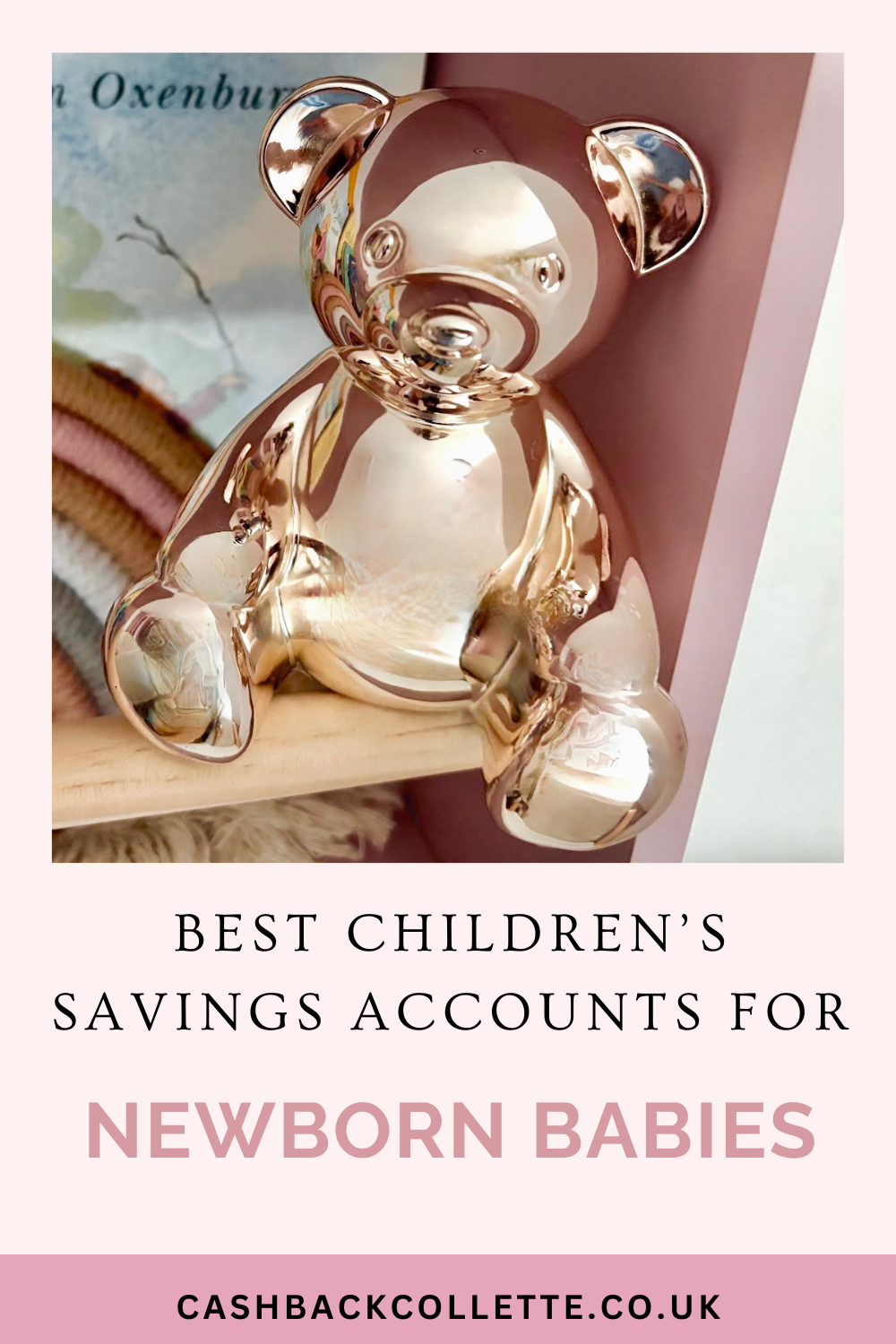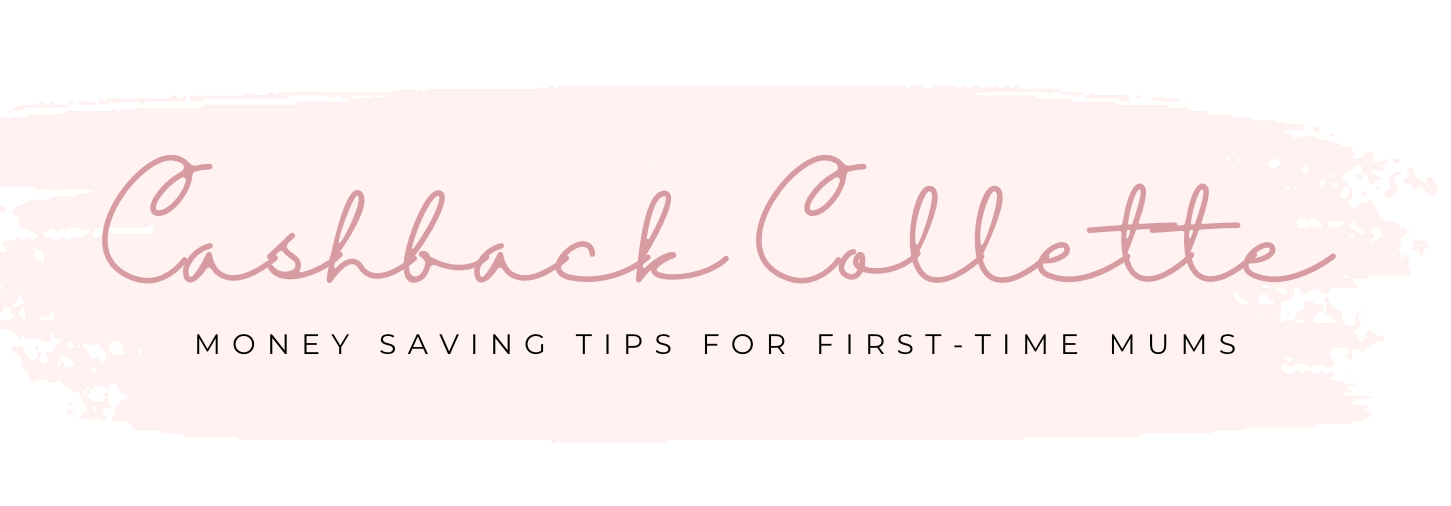There are so many different children’s savings accounts for children in the UK, and choosing the “best one” can be a bit of a minefield.
Especially if you’ve just given birth or you’re heavily pregnant and don’t have the mental capacity to add it to your never-ending to do list.
By the time I got round to looking at children’s savings accounts for my daughter, baby brain had well and truly kicked in and I was so confused about which one to choose.
That’s what inspired me to write this blog post. Hopefully, it can help you answer all those pressing questions and pick the best baby savings account for your little one.

When can I set up a children’s savings account for my baby?
You can set up a regular children’s savings account for your baby from the moment they’re born with most major UK banks. You can also open a Junior ISA (JISA) straight away in most cases.
What types of savings accounts are available for babies?
Here are the different types of savings options for babies, with the best options currently available:
Best easy-access accounts for newborns
Flexible withdrawals with no age restrictions:
| Provider | Rate (AER) | Balance limit | Key details |
|---|---|---|---|
| Kent Reliance | 4.3% | £25,000 | Can open for any age, parent controls until child is older. |
| Ecology Building Society | 2.7% | No stated cap | Ethical provider, online access. |
| Local Building Societies (varies) | 3–4% | Varies | Many mutuals allow newborn accounts; rates vary, check local branch rules. |
Best regular saver accounts for babies
High interest if you pay in monthly and avoid withdrawals:
| Provider | Rate (AER) | Term | Key details |
|---|---|---|---|
| Halifax Kids’ Monthly Saver | 5.5% fixed | 12 months | Open from birth; parent runs account; £10–£100/month deposits, no withdrawals until maturity. |
| Saffron BS Children’s Regular Saver | 4.45% variable | Ongoing | Open from birth; monthly deposits needed; ethical building society. |
Best junior cash ISAs (JISA)
Tax-free, locked until age 18. Annual limit 2025/26: £9,000.
| Provider | Rate (AER) | Access method | Key details |
|---|---|---|---|
| Loughborough BS | 4.15% | Branch/post | Parent opens on behalf of baby; no withdrawals until 18. |
| Coventry BS | 4.15% | Branch/post/phone | Accepts transfers from CTFs or other JISAs. |
| Stafford BS | 4.0% | Branch/post | Same as above; accepts transfers from existing JISAs. |
| NS&I Junior ISA | 4.0% | Online | 100% government-backed; open from birth; parent/guardian runs it. |
Alternative savings options for young children
| Option | Return | Key details |
|---|---|---|
| Premium bonds (NS&I) | Avg prize rate ~4% | Can be bought from birth by a parent; prizes tax-free. |
| Child trust fund (CTF) | Varies | Only valid if your child was born between 1st September 2002 and 2nd January 2011. |
Best picks for a newborn baby
- For max interest now: Halifax Kids’ Monthly Saver (5.5%) — if you can commit monthly
- For large lump sum & flexibility: Kent Reliance Easy-Access (4.3%)
- For long-term tax-free savings: Loughborough or Coventry BS JISAs (4.15%) or NS&I JISA (4%) for government security
- For ethical focus: Saffron BS Regular Saver or Ecology BS Easy-Access
How much money can you put into a children’s savings account in the UK?
The amount you can put into a children’s savings account depends on the type of account you choose:
- Regular children’s savings accounts (non-ISA): No official government cap — each bank or building society sets its own deposit rules. Some allow any amount from £1 upwards and may cap monthly deposits (e.g., £100 per month with Halifax Kids’ Regular Saver)
- Junior ISA (JISA): £9,000 per child, per tax year (2025–26 limit). Covers both Cash JISAs and Stocks & Shares JISAs — you can split the £9,000 allowance between them however you like
- Premium bonds (NS&I for children): £50 minimum purchase, up to £50,000 per child in total. Money can be added at any time, in multiples of £25 after the first purchase
- Bare trusts / Junior investment accounts: No legal cap — can be used for very large gifts
Do you pay tax on children’s savings accounts?
Yes, children can be taxed on their savings, but most don’t pay anything because their income (including interest) is usually below the generous tax allowances.
This is currently £12,570 personal allowance, plus up to £1,000 personal savings allowance and, in some cases, a £5,000 starting savings rate.
The main exception is HMRC’s £100 rule, which means if a parent gifts money to a child and the interest from that gift exceeds £100 in a tax year, the interest is taxed as the parent’s income.
This rule doesn’t apply to money from grandparents, relatives, or tax-free accounts like Junior ISAs and Premium Bonds.
What information do I need to open a baby savings account?
To open a children’s savings account for your baby, you’ll need the following:
1. Proof of your baby’s identity
- Full birth certificate (must show both parents’ details)
- If the baby already has one, a UK passport can also be used
2. Proof of your own identity (parent/guardian opening the account)
- Photo ID such as a valid UK passport or driving licence
- Some banks accept other forms like a national identity card or benefits letter
3. Proof of your address
- Recent utility bill (within 3 months), council tax bill, bank statement, or official government letter
- Sometimes your driving licence can be used for both ID and address
4. Parental responsibility evidence (if not obvious from the birth certificate)
- Adoption certificate, court order, or other legal proof if you’re not named on the birth certificate
Can I make withdrawals from a children’s savings account?
Yes, you can usually make withdrawals from children’s savings accounts, but the rules vary by account type and provider.
Easy-access accounts allow withdrawals at any time without penalty, while regular saver accounts often require you to keep money in for a set term and may reduce the interest rate if you withdraw early.
Fixed-rate accounts lock the money for the agreed period, and Junior ISAs cannot be accessed until the child turns 18 (though they gain account control at 16).
Premium Bonds can be cashed in at any time by the parent or guardian, and bare trusts allow withdrawals before maturity as long as the funds are used for the child’s benefit.
Are my child’s savings safe in a children’s savings account?
Yes, your child’s savings are generally safe in a UK children’s savings account if the provider is authorised by the Financial Conduct Authority (FCA) and covered by the Financial Services Compensation Scheme (FSCS), which protects up to £85,000 per person, per institution if the bank or building society fails.
Pin for later…

Accurate at the time of posting, always check current rates
